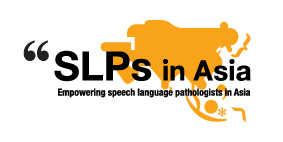Brief History of SLP development
Speech therapy was introduced in Singapore in the 1960s. The first speech therapy department was set up at the Singapore General Hospital (SGH) in 1968 by pioneer speech therapist Mrs. Juliet McCully. By the 1970s to 1980s, units were set up in public health institutions offering speech therapy services, staffed by one to two therapists. The first audiology unit was set up at SGH in 1977 under the Ear Nose Throat (ENT) department. In the 1980s, there were only four audiologists, five audio technicians, and less than 20 speech therapists working in Singapore. Most of these professionals were expatriates who had received their degrees from abroad. A pioneer audiologist starting in 1977 at SGH is Yiap Kim Hong, who is also the founding member of the Society of Audiology Professionals (Singapore). As an academic, Yiap was instrumental in setting up the first audiology service at SGH and advocated for the use of objective assessment of hearing in children using Auditory Brainstem Response (ABR) (Yiap & Loh, 1984). This facilitated the eventual roll-out of newborn hearing screening in 1999 at SGH. A pioneer audio technician is Sie Swee Hoon, who started her career at the age of 21 at SGH. She was tasked to lead the newborn infant hearing screening program and still works at SGH today.
Education
The Singapore government provides scholarships through the Public Service Commission and its various ministries for allied health professionals to access overseas training (Lau et al., 2015). With the rising demand for local audiologists and speech therapists, the National University of Singapore (NUS) established the first speech-language pathology master’s program in 2007 and the first audiology training master’s program in 2013 (National University of Singapore, 2023a, 2023b). These are two-year programs that accept graduates from a variety of disciplines. In 2020, the Singapore Institute of Technology established the first speech and language therapy undergraduate degree four-year program (Singapore Institute of Technology, 2023). Practicing professionals working in public healthcare institutions can also access postgraduate training through the Health Manpower Development Plan (HMDP) via overseas attachments and the visiting expert’s program (Lau et al., 2015). These attachments often consist of a period of time training at an overseas institution to improve clinical skills. The visiting experts program invites renowned professionals from overseas to share their skills and knowledge with local professionals through lectures, seminars, and workshops. In summary, there is one undergraduate and one master’s speech therapy program and one audiology master’s program in Singapore. No doctorate programs for either profession are available currently.
Licensure system
In 2011, the Ministry of Health established the Allied Health Professions (AHP) Act and the Allied Health Professions Council (AHPC) (Allied Health Professions Council, 2023; Lau et al., 2015). The AHPC regulates the practice of AHPs in Singapore through issuing practicing certificates known as “practising certificates” to AHPs that have registered and met requirements for training, conduct and practice. Under the AHP Act Section 29, “it is an offence to practise as an Allied Health Professional in Singapore without registration and a valid practising certificate”. Speech therapists, along with occupational therapists and physiotherapists were the first professions to be registered in 2013. Registration and regulation for other allied health professions under the Act, including audiologists, will commence in subsequent phases. In December 2022, there were 791 registered speech therapists (Allied Health Professions Council, 2022). In 2023, there are 126 registered audiologists (Society for Audiology Professionals Singapore, 2020).
In order to practice in Singapore, all AHPs under regulation must be registered with AHPC and issued a practicing certificate. All speech-language therapists and audiologists who wish to practice in Singapore must possess a primary professional qualification (bachelor’s or master’s) in their profession. If their basic professional qualification is not found on AHPC’s list of recognized qualifications, they will be required to take a Qualifying Examination for their profession, which is an assessment of professional knowledge and skills expected of their profession. Additionally, foreigners should have an offer of employment in their profession in Singapore to be considered for AHPC registration (Allied Health Professions Council, 2023). The practicing certificate has a validity of two years, and AHPs are required to renew their certificates with AHPC.
